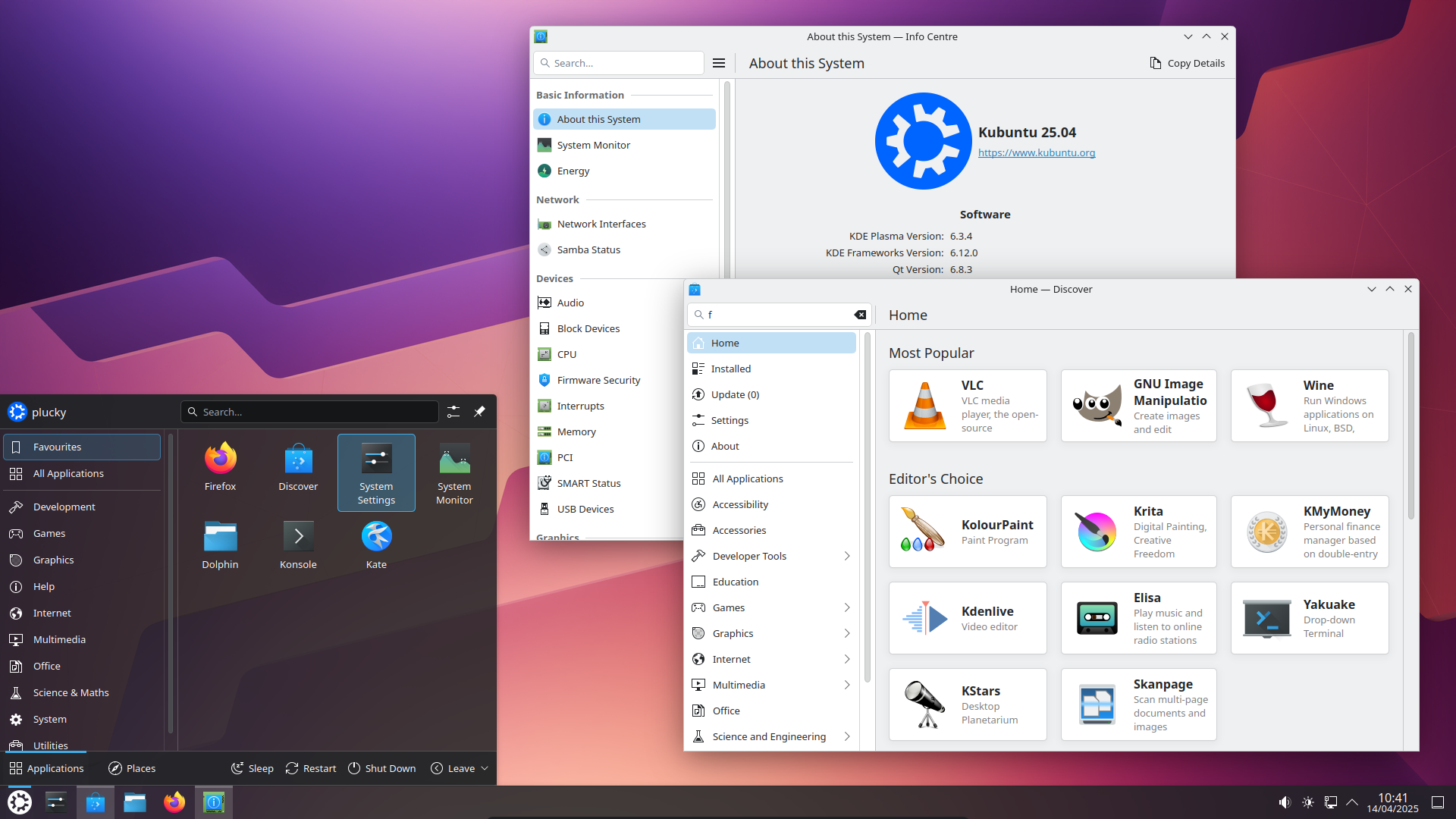Kubuntu 25.04, codenamed “Plucky Puffin,” has been officially released, introducing a suite of enhancements aimed at improving user experience and developer productivity. This latest iteration features the KDE Plasma 6.3 desktop environment, Linux kernel 6.14, and updated development toolchains, marking a significant step forward for the Ubuntu-based distribution.
The integration of KDE Plasma 6.3 brings a refreshed user interface, offering improved performance and a more cohesive design. Users can expect smoother animations, enhanced system settings, and better support for high-resolution displays. The update also includes KDE Gear 24.12.3, providing the latest versions of applications such as Dolphin, Kdenlive, and Okular, which have received various usability and performance improvements.
Under the hood, Kubuntu 25.04 is powered by Linux kernel 6.14, delivering better hardware compatibility and performance enhancements. This kernel update supports newer graphics cards and processors, ensuring that the operating system can take full advantage of modern hardware capabilities.
For developers, the release offers a range of updated toolchains. Golang has been updated to version 1.24, LLVM defaults to version 20, and Python has been refreshed to version 3.13.3. Additionally, the Rust toolchain now defaults to version 1.84, and a snapshot of the upcoming GCC 15 is included. These updates provide developers with access to the latest language features and performance improvements, facilitating the development of modern applications.
The system’s core applications have also seen updates. Firefox and LibreOffice are included in their latest versions, ensuring users have access to current web browsing and office productivity tools. The inclusion of these applications out of the box underscores Kubuntu’s commitment to providing a ready-to-use desktop environment.
Kubuntu 25.04 continues to leverage the extensive Ubuntu software repositories, allowing users to install a wide array of applications via traditional package managers or Snap. This flexibility ensures that users can tailor their systems to meet specific needs, whether for general use, development, or specialized tasks.

